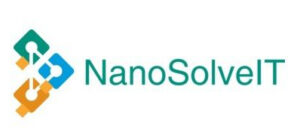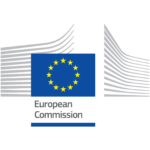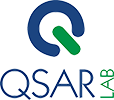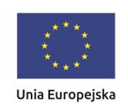H2020 Projects
 ID: 760813
ID: 760813
From: 1.01.2018 to 30.06.2021
Coordinated by: SWANSEA UNIVERSITY
QSAR Lab – member of consortium.
The coordinator of the PATROLS project at QSAR LAB company is PhD Eng Karolina Jagiełło.
PATROLS, a H2020 Project, is setting out to change the way we think about and test engineered nanomaterials to ensure they are safe and fit for purpose. PATROLS aims to develop an enhanced suite of robust, reproducible and transferable in vitro tests, which will offer improved prediction of the long-term nanomaterial hazard effects in humans and the environment. These next-generation test systems will be fit for purpose to better support regulatory risk decision making and reduce the reliance on animal testing.
PATROLS scientific outputs
PATROLS aims to deliver:
- 3D tissue models of lung, gastro-intestinal tract and liver for ENM testing to reduce the need for animal tests
- Novel methods for safety assessment in ecological test systems to better understand the impact of environmental ENM exposure.
- Robust computational models for ENM exposure and hazard prediction to enhance predictive risk modelling
- Characterisation of ENMs under realistic exposure conditions to improve relevance of nanosafety testing
More information on the website https://www.patrols-h2020.eu/
The source comes from PATROLS website and social media.

ID: 814572
From: 1.01.2019 do 28.02.2023
Coordinated by: NOVAMECHANICS LIMITED
QSAR Lab – member of consortium.
The coordinator of the NanoSolveIT project at QSAR LAB company is Anna Rybińska-Fryca.
NanoSolveIT aspires to introduce a groundbreaking in silico Integrated Approach to Testing and Assessment (IATA) of the environmental health and safety of Nanomaterials (NM) that will be implemented through a decision support system packaged as both a stand-alone open software and via a Cloud platform.
NanoSolveIT scientific outputs
NanoSolveIT will develop and deliver:
- a reliable user friendly knowledge-based infrastructure for data hosting, sharing and exploitation,
- NM fingerprints, i.e., sets of nanodescriptors and properties that can be predictively linked to NM functionality, exposure and hazard thereby supporting NM grouping, safe-by-design (SbD) and regulatory risk assessment (RA),
- innovative methodologies for NMs predictive (eco)toxicology underpinned by artificial intelligence (AI) and state-of-the-art in silico techniques,
- integration with currently developing multi-scale modelling, RA and governance frameworks in EU H2020 funded and in the forthcoming NMBP-13 project(s).
More information on the website: http://www.nanosolveit.eu
The source comes from NanoSolveIT website and social media.

ID: 814425
From: 1.01.2019 to: 28.02.2023.
Coordinated by: NORSK INSTITUTT FOR LUFTFORSKNING STIFTELSE
QSAR Lab – member of consortium.
The coordinator of the RiskGONE project at QSAR LAB company is PhD Eng Anita Sosnowska.
RiskGONE will support the standardization and validation process for ENM by evaluating, optimizing and pre-validating SOPs and TGs and integrating them into a framework for risk governance (RG) of ENMs.
The objectives of the RiskGONE project:
- Establish a science-based nanomaterials safety governance body, in the form of a transparent, self-sustained Risk Governance Council, representing EU Member States and public authorities, scientific experts, civil society and industry
- Develop a modular risk governance decision-making framework addressing different aspects of governance
- Produce nano-specific draft guidance documents to support risk governance of nanomaterials
More information on the website: www.riskgone.wp.nilu.no
The source comes from RiskGONE website and social media.

ID: 101008099
From: 1.06.2021 to: 31.05.2025.
Coordinated by: NOVAMECHANICS LIMITED
QSAR Lab – member of consortium.
The CompSafeNano project concerns the development of integrated and universal nanoinformatics models that will be widely used in all kinds of nanoforms (materials, composites) used
and manufactured by manufacturing companies. Integrated nano-IT models will also be used by regulators to assess risks and make the right decisions. The project will also contribute to increasing the competence of scientists in the approach to nanoinformatics.
ID: 953152
From: 1.05.2021 r. to 31.10.2024 r.
Coordinated by: UNIVERSIDAD DE BURGOS
QSAR Lab – member of consortium.
The coordinator of the DIAGONAL project at QSAR LAB company is PhD Alicja Mikołajczyk.
DIAGONAL project is aimed at development and implementation of safe by design tools and Guidelines for Multicomponent (MCNMs) and Hight Aspect Ratio (HARNs) nanoparticles. DIAGONAL will develop and establish new structure-property-function (SPF) and structure-property-hazard (SPH) relationship to increase understanding of the behavior and safety of MCNMs and HARNs.
From: 1.11.2021 to 30.04.2025
Coordinated by: BUREAU DE RECHERCHES GEOLOGIQUES ET MINIERES
QSAR Lab – member of consortium.
More information on the website https://www.linkedin.com/company/promisces/
The source comes from PROMISCES Linkedin profile.


From: 1.09.2022 to 31.08.2025
Coordinated by: VLAAMSE INSTELLING VOOR TECHNOLOGISCHONDERZOEK N.V.
QSAR Lab – member of consortium.
The Horizon 2020-funded project NOUVEAU will develop solid oxide cells with novel electrode materials and interconnects with a reduced amount of REE, PGM and Cr by employing innovative coating methodologies and modelling, in combination with sustainable-by-design aspects and recycling options.
The deployment of renewable energy (electricity or non-fossil H2) to chemicals and fuels towards the desired transition from fossil fuel dependency to a sustainable low-carbon energy future. The resulting technology will thus be closely aligned with the SusChem’s Strategic Innovation and Research Agenda 2020, complying with SusChem’s sustainability and industrial priorities for advanced materials; digital technologies and technologies for chemical energy storage and generation. The use of the developed NOUVEAU technology is expected to play an important role in meeting national and international carbon reduction targets leading towards a zero-carbon future, including the 2015 Paris Agreement on Climate Change and the European Commission's Energy Roadmap 2050.

National and regional projects:
Project no. POIR.01.01.01-00-0372 / 19 "Nano-QSAR Toolbox - a platform for computer prediction of physicochemical properties, toxicity and ecotoxicity of titanium dioxide nanoparticles"
Project implementation period: 01/12/2019 - 30/11/2022
Project total cost: PLN 2,157,705.00
The amount of co-financing of the project from EU funds is: PLN 1,695,287.75
Co-financing: The "Fast Track" competition is carried out under Sub-measure 1.1.1. "Industrial research and development works carried out by enterprises" of the Intelligent Development Operational Program 2014-2020 by the National Center for Research and Development.
The aim of the project is to develop and implement the Nano-QSAR Toolbox platform, enabling computer-based prediction of the physico-chemical properties, toxicity and ecotoxicity of nanoparticles of titanium dioxide in the context of the risk assessment required for the registration of new chemicals before they are placed on the market.
The result of the project will be a product innovation on the scale of at least the Polish market and foreign markets. The Nano-QSAR computer modelling method will allow prediction of selected physicochemical, toxicological and ecotoxicological properties and generate reports presenting results, consistent with the area of the regulation in which the given nanoparticle will be used.

Project no. POIR.01.01.01-00-0779 / 20 "Development and implementation of the Nano-QSAR Toolbox platform enabling computer prediction of the physicochemical properties, toxicity and ecotoxicity of ZnO and SiO2 nanoparticles"
Project implementation period: 01/11/2020 - 30/06/2023
Project total cost: PLN 2,713,734.28
The amount of co-financing of the project from EU funds is: PLN 2,127,048.52
Co-financing: The "Fast Track" competition is carried out under Sub-measure 1.1.1. "Industrial research and development works carried out by enterprises" of the Intelligent Development Operational Program 2014-2020 by the National Center for Research and Development.
The aim of the project is to develop and implement the Nano-QSAR Toolbox platform, enabling computer-based prediction of the physico-chemical properties, toxicity and ecotoxicity of nanoparticles zinc dioxide, and silicon dioxide in the context of the risk assessment required for the registration of new chemicals before they are placed on the market.
The result of the project will be a product innovation on the scale of at least the Polish market and foreign markets. The Nano-QSAR computer modelling method will allow prediction of selected physicochemical, toxicological and ecotoxicological properties and generate reports presenting results, consistent with the area of the regulation in which the given nanoparticle will be used.

Project no. POIR.01.01.01-00-1964 / 20 "PeptAlm - a platform based on artificial intelligence to study peptide-protein interactions from virtually generated peptide libraries"
Project implementation period: 01/09/2021 - 31/12/2023
Total project cost: PLN 5,354,669.75, including PLN 3,034,834.75 for QSAR Lab
The amount of co-financing of the project from EU funds is: PLN 4,002,626.57, including PLN 2,213,327.07 for QSAR Lab.
The aim of the project is to increase the competitiveness of the consortium members by developing and implementing an AI-assisted (artificial intelligence) bioinformatics platform supporting the development of molecular diagnostic tests, enabling the selection of ligands (peptides) with high affinity for target proteins.
The result of the project is a product innovation characterised by new features on the Polish and foreign markets.
The main area of application of the software will be broadly understood molecular diagnostics and other scientific areas studying protein-protein interaction such as ligand-receptor interactions. The program will provide basic information on the sequence, spatial structure and affinity strength of the candidate peptides for a given target receptor.

Providing support in the form of a foreign broker service under the project: "Pomeranian Export Broker. A comprehensive export support system in the Pomeranian Voivodeship.
QSAR Lab received support under the above project for two grant agreements:
1. UDG-PBE.04.2020 / 063
The subject of this agreement is to provide funding for the implementation of the project "Expansion of QSAR Lab sp. Z o. O. Services to foreign markets" in the form of financial support for the participation of SMEs in the fair.
The aim of the project is company development and expantion of the services especially in European markets. The results of the project will be achieved through participation in three international events. The result will be the expansion of the company's customer base on foreign markets and increased recognition.
Project start date: 18/12/2020
Project completion date: 30/09/2022
Total project implementation cost: PLN 78,962.92
Co-financing from the European funds budget: PLN 39,377.96
Own contribution: PLN 39,377.96
2. DRP / 51/2020
The subject of this agreement is to provide support in the form of a foreign broker service.
The estimated value of the foreign broker service is PLN 70,000.
As part of the support, the company will receive a study and analysis of the Swedish market, including research on opportunities and assistance in initiating business contacts, as well as support in establishing business relationships by organizing meetings with potential contractors on the Swedish market.
(Regional Operational Program of the Pomeranian Voivodeship for 2014-2020)

Expansion of QSAR Lab's services to foreign markets - application for a grant under the grant project "Pomeranian Export Broker. A comprehensive export support system in the Pomeranian Voivodeship "
(Regional Operational Program of the Pomeranian Voivodeship for 2014-2020)
Grant project "SPEKTRUM. Pomeranian System of Advisory Services"
Project implementation date:
Project start date: 01/01/2021
Project completion date: 31/05/2021
The total cost of the Project is PLN 34 160.00, including:
- total amount from the European funds budget: PLN 32 452.00
- own contribution: PLN 1 708.00 The aim of the SPEKTRUM
The Aim of the Project is to enable enterprises from the SME sector to purchase the necessary development services. Grants are awarded to cover part of the costs of purchasing specialist consulting services.

Grant project "SPEKTRUM. Pomeranian System of Advisory Services"
No. Project: WNG-SPE.03.00/006
Project implementation date:
Project start date: 01/07/2022
Project completion date: 31/12/2022
The total cost of the Project is PLN 47 970,00.
The Aim of the Project is to enable enterprises from the SME sector to purchase the necessary development services. Grants are awarded to cover part of the costs of purchasing specialist consulting services.

Agreement 233/KFS/2022 for financing the costs of continuing education of employees and employers from the National Training Fund.
The total cost of the Project is PLN 6,000.00.
The aim of the KFS Project is to help finance training services for a team of employees of companies participating in the program.

The agreement is implemented as part of the Project entitled "Intellectual property in your company" POIR.02.06.00-00-0001 / 19-00 financed under the Intelligent Development Operational Program, action 2.6 "Non-competition project of the Patent Office of the Republic of Poland", under the European Regional Development Fund.
The aim of the project is to develop the practical skills of entrepreneurs in the use of intellectual property protection, including industrial property, and to make them aware of the possibility of benefiting from this protection.
The expected measurable effects of the project include new:
- notifications of industrial property objects;
- granted exclusive rights to industrial property objects;
- concluded license agreements relating to intellectual property rights;
- concluded contracts for the transfer of intellectual property rights;
- internal regulations implemented in the enterprise in the field of intellectual property protection and management;
- contracts concluded with employees of the enterprise containing clauses relating to intellectual property;
- other instruments, such as the valuation of intangible assets.
The total cost of the Project is PLN 1,463.41 PLN
The amount of the Grant is PLN 1,317.07 PLN, which is 90% of the total project costs.


